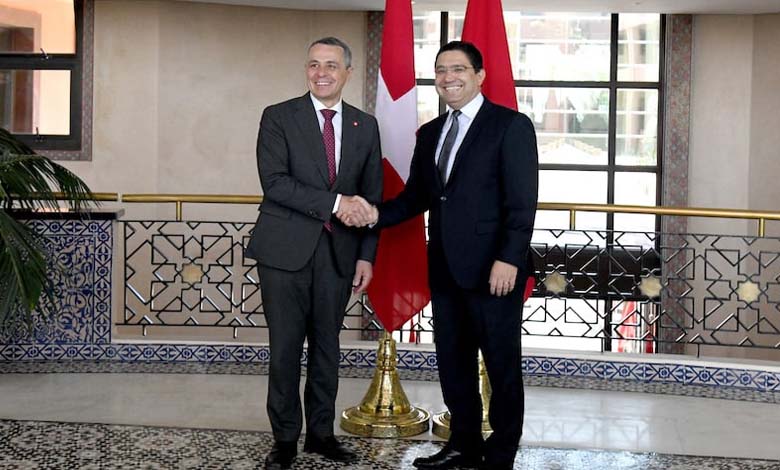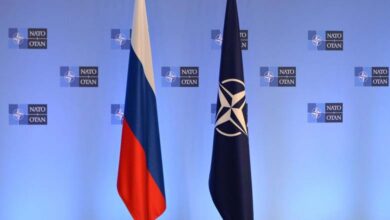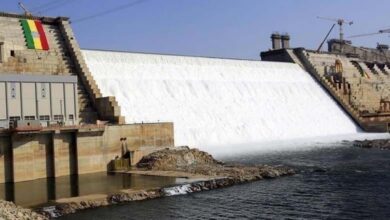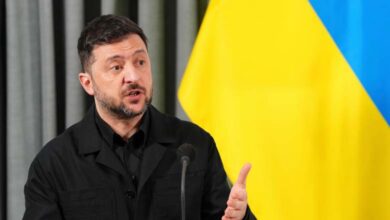Switzerland Supports a Realistic and Acceptable Political Solution to the Moroccan Sahara Issue
The President of the Swiss National Council emphasizes the importance of sincere and reliable efforts made by Morocco to reach a permanent political solution based on consensus for the Moroccan Sahara conflict

The President of the Swiss National Council, Eric Nussbaumer, in Rabat, expressed his country’s support for a “fair, permanent, and mutually acceptable” political solution to the regional dispute over the Moroccan Sahara, renewing its position that undermines attempts by the Polisario to gain international recognition, considering itself committed to the UN decisions prioritizing the Moroccan autonomy initiative under the sovereignty of the Kingdom as the sole and credible basis for ending the artificial conflict.
Nussbaumer emphasized in a statement to the press after his discussions with the Minister of Foreign Affairs, African Cooperation, and Moroccans Residing Abroad, Nasser Bourita, that “Switzerland supports the efforts of the United Nations and the work of the Personal Envoy of the UN Secretary-General for the Sahara, Staffan de Mistura, to reach a fair, permanent, and mutually acceptable political solution, in line with international law and relevant Security Council resolutions.”
He stressed that his country reaffirms the importance of sincere and reliable efforts made by Morocco to reach a consensus-based political solution, referring to the autonomy initiative proposed to the Secretary-General of the United Nations in 2007. He added that his country also encourages all parties to continue their commitment in a spirit of consensus.
Switzerland is keen to deny any link with the Polisario and to thwart all its attempts, supported by Algeria, to gain recognition, as the isolation of the separatist front deepens amid growing international support for the Moroccan autonomy initiative, which Rabat presents as the sole solution to end the Sahara conflict.
The Polisario lives in a state of international isolation due to the unrealism and insincerity of its separatist proposals, as separatism in general is no longer an acceptable solution to international conflicts in light of the major political changes the world has witnessed.
The major powers that now have strategic relations with Morocco are convinced of the seriousness of the Moroccan proposal and the efforts made by Rabat to find a solution to this conflict, thus minimizing the diplomatic movements of the front and narrowing its scope day by day with the daily setbacks it faces, the latest of which is the confirmation by the Swiss Ministry of Foreign Affairs that the front does not have any official representation either at the United Nations Office in Geneva or at the Federal Council.
The Irish Ministry of Foreign Affairs recently denied allegations by the Polisario and Algeria that its president, Brahim Ghali, made an official visit to Dublin, emphasizing that “Bern does not recognize the illusory entity.”
The Irish Embassy in Morocco reiterated in a statement that “Dublin maintains its support for efforts led by the United Nations and the efforts of the Secretary-General to reach a final and mutually acceptable political settlement on this issue.”
Morocco is reaping the rewards of its diplomatic success in settling the Moroccan Sahara issue in its favor and gaining broad international support for its initiative to end the artificial conflict, as evidenced by the opening of dozens of consulates in the cities of Dakhla and Laayoune in the Southern Provinces of the Kingdom, while the future is expected to witness the inauguration of new diplomatic missions.
Mohamed Salem Abdelkafar, President of the Sahrawi Center for Information and Human Rights, says that the lack of interest in the separatist thesis in recent years is a clear indicator of the changing attitude of the international community, whether regarding the issue of the Moroccan Sahara or the security issues in the Maghreb region.
Abdelkafar emphasizes in statements to the press that the exit of some influential major powers from the gray area and their engagement in the UN approach supporting a realistic and rational solution in harmony with the Moroccan autonomy initiative.












